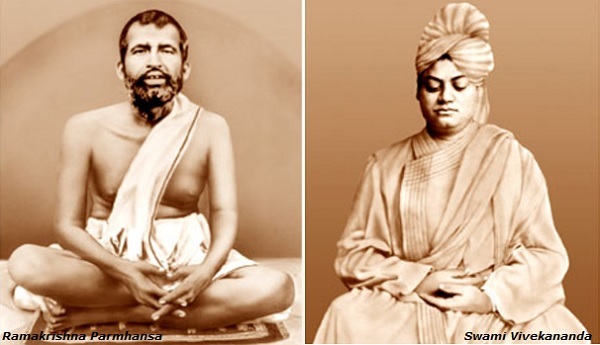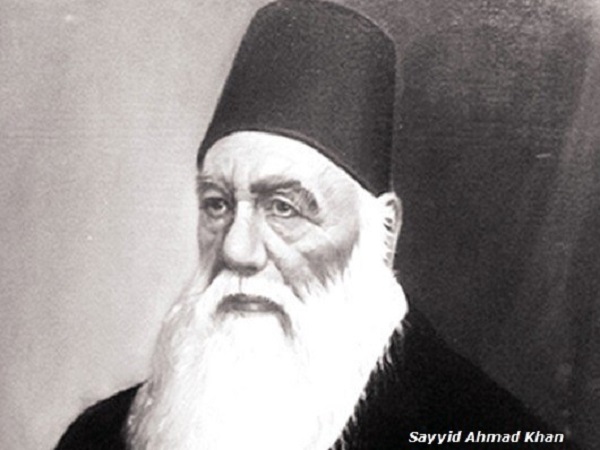
- Modern Indian History - Home
- Decline of Mughal Empire
- Bahadur Shah I
- Jahandar Shah
- Farrukh Siyar
- Muhammad Shah
- Nadir Shah’s Outbreak
- Ahmed Shah Abdali
- Causes of Decline of Mughal Empire
- South Indian States in 18th Century
- North Indian States in 18th Century
- Maratha Power
- Economic Conditions in 18th Century
- Social Conditions in 18th Century
- Status of Women
- Arts and Paintings
- Social Life
- The Beginnings of European Trade
- The Portuguese
- The Dutch
- The English
- East India Company (1600-1744)
- Internal Organization of Company
- Anglo-French Struggle in South India
- The British Conquest of India
- Mysore Conquest
- Lord Wellesley (1798-1805)
- Lord Hastings
- Consolidation of British Power
- Lord Dalhousie (1848-1856)
- British Administrative Policy
- British Economic Policies
- Transport and Communication
- Land Revenue Policy
- Administrative Structure
- Judicial Organization
- Social and cultural Policy
- Social and Cultural Awakening
- The Revolt of 1857
- Major Causes of 1857 Revolt
- Diffusion of 1857 Revolt
- Centers of 1857 Revolt
- Outcome of 1857 Revolt
- Criticism of 1857 Revolt
- Administrative Changes After 1858
- Provincial Administration
- Local Bodies
- Change in Army
- Public Service
- Relations with Princely States
- Administrative Policies
- Extreme Backward Social Services
- India & Her Neighbors
- Relation with Nepal
- Relation with Burma
- Relation with Afghanistan
- Relation with Tibet
- Relation with Sikkim
- Relation with Bhutan
- Economic Impact of British Rule
- Nationalist Movement (1858-1905)
- Predecessors of INC
- Indian National Congress
- INC & Reforms
- Religious & Social Reforms
- Religious Reformers
- Women’s Emancipation
- Struggle Against Caste
- Nationalist Movement (1905-1918)
- Partition of Bengal
- Indian National Congress (1905-1914)
- Muslim & Growth Communalism
- Home Rule Leagues
- Struggle for Swaraj
- Gandhi Assumes Leadership
- Jallianwalla Bagh Massacre
- Khilafat & Non-Cooperation
- Second Non-Cooperation Movement
- Civil Disobedience Movement II
- Government of India Act (1935)
- Growth of Socialist Ideas
- National Movement World War II
- Post-War Struggle
- Clement Attlee’s Declaration
- Reference & Disclaimer
Modern Indian History - Religious Reformers
Following are the significant religious reformers of modern India −
Ramakrishana and Vivekananda
Ramakrishna Parmhansa (1834-1886) was a saintly person who sought religious salvation in the traditional ways of renunciation, meditation, and devotion (bhakti).
Parmhansa, again and again, emphasized that there were many roads to God and salvation and that service of man was service of God, for man was the embodiment of God.
Swami Vivekananda (1863-1902), a disciple of Ramakrishan Parmhansa popularized his religious message and tried to put it in a form that would suit the needs of contemporary Indian society.
Swami Vivekananda said, Knowledge unaccompanied by action in the actual world in which we lived was useless.
In 1898, Swami Vivekananda wrote For our own motherland a junction of the two great systems, Hinduism and Islam is the only hope.
Vivekananda condemned the caste system and the current Hindu emphasis on rituals, ceremonies, and superstitions, and urged the people to imbibe the spirit of liberty, equality, and free thinking.

To the educated Indians, Swami Vivekananda said, So long as the millions live in hunger and ignorance, I hold everyman a traitor who having been educated at their expense, pays not the least heed to them.
In 1896, Vivekananda founded the Ramakrishna Mission to carry on humanitarian relief and social work.
The Mission had many branches in different parts of the country and carried on social service by opening schools, hospitals, and dispensaries, orphanages, libraries, etc.
Swami Dayanand (Arya Samaj)
Arya Samaj was founded in 1875 by Swami Dayanand Saraswati (1824-1883).
Swami Dayanand believed that selfish and ignorant priests had perverted Hindu religion with the aid of the Puranas, which he said were full of false teachings.
Swami Dayanand rejected all later religious thought if it conflicted with the Vedas. His total dependence on the Vedas and their infallibility gave his teachings an orthodox coloring.
Swami Dayanand was opposed to idolatry, ritual, and priesthood and particularly to the prevalent caste practices and popular Hinduism as preached by brahmins.
Some of Swami Dayanand's followers later started a network of schools and colleges in the country to impart education on western lines; Lala Hansraj played a leading part in this effort.
On the other hand, in 1902, Swami Shradhananda started the Gurukul near Hardwar to propagate the most traditional ideals of education.
Sayyid Ahmad Khan (Aligarh School)
The Mohammedan Literary Society was founded at Calcutta in 1863. This Society promoted discussion of religious, social, and political questions in the light of modern ideas and encouraged upper and middle class Muslims to take to western education.

The most important reformer among the Muslims was Sayyid Ahmad Khan (1817-1898). He was tremendously impressed by modern scientific thought and worked all his life to reconcile it with Islam.
Sayyid Ahmad Khan, first of all, declared that the Quran alone was the authoritative work for Islam and all other Islamic writings were secondary.
Sayyid Ahmad Khan urged the people to develop a critical approach and freedom of thought. He said, "so long as freedom of thought is not developed, there can be no civilized life."
He also warned against fanaticism, narrow-mindedness, and exclusiveness, and urged students and others to be broadminded and tolerant. A closed mind, he said, was the hallmark of social and intellectual backwardness.
Therefore promotion of modern education remained his first task throughout his life. As an official, he founded schools in many towns and had many western books translated into Urdu.
In 1875, Sayyid Ahmad Khan founded the Mohammedan Anglo-Oriental College at Aligarh as a center for spreading western sciences and culture. Later, this College grew into the Aligarh Muslim University.
Sayyd Ahmad Khan was a great believer in religious toleration. He believed that all religions had a certain underlying unity, which could be called practical morality. Believing that a person's religion was his or her private affair, he roundly condemned any sign of religious bigotry in personal relations. He was also opposed to communal friction. He appealed to Hindus and Muslims to unite.
Sayyid Ahmad Khan wrote in favor of raising the women's status in society and advocated removal of purdah and spread of education among women. He also condemned the customs of polygamy and easy divorce.
Sayyid Ahmad Khan was helped by a band of loyal followers who are collectively described as the Aligarh School.
Muhammad Iqbal
One of the greatest poets of modern India, Muhammad Iqbal (1876- 1938) also profoundly influenced by his poetry, the philosophical and religious outlook of the younger generation of Muslims as well as of Hindus.
Iqbal was basically a humanist. In fact, he raised human action to the status of a prime virtue.